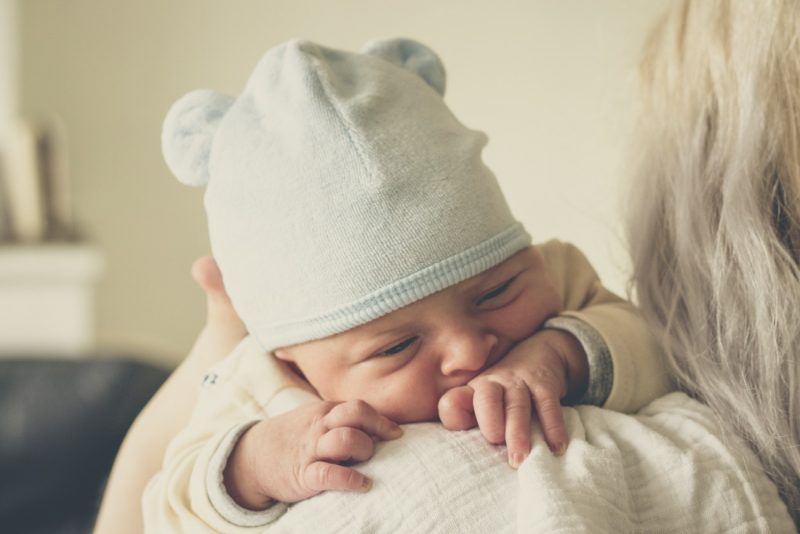Place your own oxygen mask on first before helping others. Every time you fly you hear this announcement. It is kind of a no-brainer. I mean, of course, you plan on putting the mask on yourself first. But the first time you fly with your child, the message will make you pause. Your heart beats faster when the announcement is made. You realize that you would have to actively stop yourself from attending to your child first when the masks drop. But then you play out the disaster scenario a bit further. What would become of a child left to face the emergency alone? You come to understand that what they are telling you is simply common sense.
The flight announcement is a perfect metaphor for parenting. It will present itself again and again, from the day you bring your baby home to the day your child graduates into adulthood. The first oxygen challenge revolves around sleep. You’ve heard the tales of sleep deprivation and you brace yourself for the endless sleepless nights. But the truth is that no one is really able to articulate how hard it will become. Sleep deprivation not only affects your mood but takes a serious toll on your cognitive functions as well. It is akin to parenting while drunk.

Incidents of Sudden Unexpected Infant Death (SUID) often occur in a home where the parents are suffering from sleep deprivation. Bringing the baby into bed to breastfeed, falling asleep with the baby on a chair or couch or neglecting to place the baby in a safe sleep environment can lead to devastating results. In order to avoid this tragedy, you must develop a safe sleep plan and follow a set of strict rules surrounding the baby’s sleep from day one. Most importantly, you must also make your own sleep needs a priority.

Develop a Set of Rules and Stay Consistent
Long before you bring your baby home, it is important to establish safe sleep rules and it is your job to enforce them from moment one. Never allow your baby to sleep anywhere other than their crib. If the baby falls asleep while on the couch or in a car seat or bouncy chair, transfer them to the crib as soon as possible. Establish boundaries between the baby and your household pets. Although it is adorable to see them snuggled up together, it is unsafe for a baby to sleep next to them. Abolish smoking in the house and limit contact with adults that carry tobacco fumes on their clothing. Be certain to educate all caregivers on your rules for safe sleep.
Decorate the Nursery, Not the Crib
Creating a safe space for your baby to sleep becomes a priority while nesting. While we recommend sharing a room for the first 6 months, establishing the nursery is both fun and essential. While preparing this space, keep in mind that the crib should be left bare. Bumpers, blankets, pillows and stuffed animals in the crib should be reserved for after your baby has reached their first birthday. While room sharing, the baby should have their own space next to your bed. The Cribs for Kids Cribette is a perfect solution. In the first months use the nursery for feedings. This will acclimate your baby to the surroundings of their future bedroom.
Establish Rules Around Nighttime Feedings
It is so easy and convenient to bring the baby into bed to breastfeed at night but the danger of falling asleep while feeding is just too real. As difficult as it may be, moving to another room is your safest scenario. It is interesting that mothers are often depicted throughout history sitting with their baby in a wooden rocking chair. This is actually an ideal setup for nighttime feedings. The act of rocking the chair keeps the mother somewhat alert while lulling the baby into a deeply relaxed state. The moment that the baby is finished feeding, they will be ready to fall back to sleep quickly in their own space. The chair surface, much like the crib, should have no soft surfaces or extra adornments. Always keep in mind that this is not about the mother’s comfort or convenience, it is about the baby’s safety.
Sleep When the Baby Sleeps
Establishing this pattern is essential, but is not always as easy as it sounds. Shutting down during the day is not normally a part of our routine. A nap is considered a luxury that many of us can’t afford in our day to day lives. Understand that it has now become your job to nap, and give yourself permission to do so. It is also important to give yourself an unusually early bedtime. Keep in mind that this routine is not permanent, but will be necessary until the baby can sustain sleep for longer periods of time throughout the night.
No Need to Whisper!
The sooner that you can develop a routine sleeping schedule for your baby, the better off you will be. This will allow you to adapt to the same schedule and you will be able to plan your day around it. People assume that when a baby sleeps, the household must shut down, whispering and walking on tiptoes until the baby awakes. The sound of the telephone or doorbell becomes a nightmare scenario. The fact is, you cannot possibly sustain this cone of silence through the 3 to 4 years that your child will nap. Instead, allow the baby to adapt to the sounds of your household.

Practice Self Care
Keeping up with your self-care routine will become next to impossible when your baby enters the household but actively carving out time for yourself will help with your overall well being. Maternity leave can become downright bizarre and at times extremely lonely. With the days running into one another and all of your focus the baby, it is easy to lose yourself in the shuffle. As you heal, you will begin to feel more like yourself. Run with it! Be sure to establish rules for yourself and stick to a routine that will normalize your day. Eat well, exercise when you can and find the time to shower regularly, you will be surprised at how difficult this last one can be.
Learn to Ask for Help
If you normally have hang-ups about asking others for help, abandon these thoughts completely. Yes, your friends and family are hanging around because they want the baby cuddles but they also love you and are eager to help. We are not meant to do this alone, we never were. Don’t be afraid to call a friend and ask for help with housework or grocery shopping. Become ok with having someone sit with the baby while you simply take a walk or a long hot bath. If you happen to have visitors that become a burden, or that you feel you are waiting on, find your voice and set boundaries.

The goal of alleviating parental exhaustion is not impossible. You need to develop a plan and give some thought to achieving balance, which will require a certain level of give and take on both your part and on the part of the baby. Keep in mind that you are in this for the long haul. Establishing correct sleeping habits will add to the overall wellness of your child and ultimately promote a more peaceful household. Have a plan in place and consistently stick to it from day one. Going in blind will lead to you frantically adapting to the whims of the baby. In other words, placing the oxygen mask on the baby’s face first with no idea what might happen next.
Additional Resources:
- Cribs for Kids Safe Sleep Academy
- Ask the Pediatrician
- Using the 5 S’s for Soothing a Baby – Harvey Karp, MD






